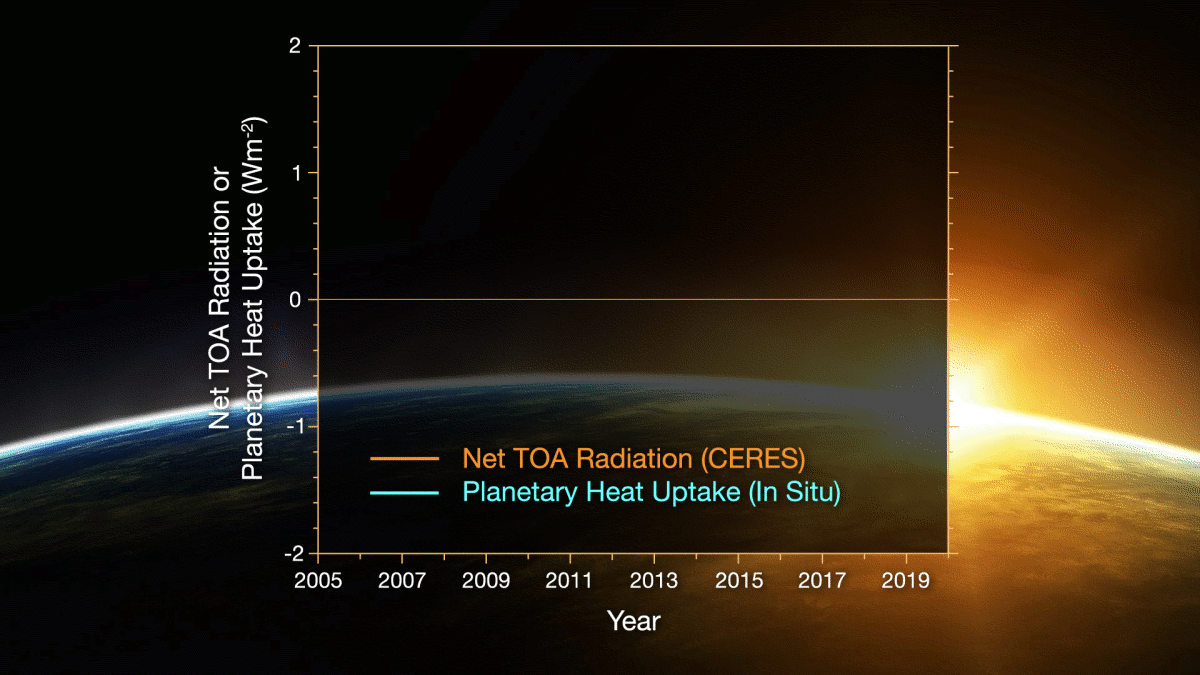“The magnitude of the increase is unprecedented.”
A new study published by NASA’s Norman Loeb and co-authors examines the CERES satellite instruments’ measurements of how Earth’s radiative energy budget has changed. The period they study is rather limited, 2005-2019, probably to be able to use the most extensive Argo float deep-ocean temperature data.
The study includes some rather detailed partitioning of what sunlight-reflecting and infrared-emitting processes are responsible for the changes, which is very useful. They also point out that the Pacific Decadal Oscillation (PDO) is responsible for some of what they see in the data, while anthropogenic forcings (and feedbacks from all natural and human-caused forcings) presumably account for the rest.
One of the encouraging results for NASA’s CERES Team is that the rate of increase in the accumulation of radiant energy in the climate system is the same in the satellite observations as it is when computed from in situ data, primarily the Argo float measurements of the upper half of the ocean depths. It should be noted, however, that the absolute value of the imbalance cannot be measured by the CERES satellite instruments; instead, the ocean warming is used to make a “energy-balanced” adjustment to the satellite data (which is the “EB” in the CERES EBAF dataset). Nevertheless, the CERES dataset is proving to be extremely valuable, even if its absolute accuracy is not as high as we would like in climate research.
The main problem I have is with the media reporting of these results. The animated graph in the Verge article shows a planetary energy imbalance of about 0.5 W/m2 in 2005 increasing to about 1.0 W/m2 in 2019.

First of all, the 0.5 to 1.0 W/m2 energy imbalance is much smaller than our knowledge of any of the natural energy flows in the climate system. It can be compared to the estimated natural energy flows of 235-245 W/m2 in and out of the climate system on an annual basis, approximately 1 part in 300.
Secondly, since we don’t have good global energy imbalance measurements before this period, there is no justification for the claim, “the magnitude of the increase is unprecedented.” To expect the natural energy flows in the climate system to stay stable to 1 part in 300 over thousands of years has no scientific basis, and is merely a statement of faith. We have no idea whether such changes have occurred in centuries past.
This is not to fault the CERES data. I think that NASA’s Bruce Wielicki and Norm Loeb have done a fantastic job with these satellite instruments and their detailed processing of those data.
What bothers me is the alarmist language attached to (1) such a tiny number, and (2) the likelihood that no one will bother to mention the authors attribute part of the change to a natural climate cycle, the PDO.

 Home/Blog
Home/Blog



